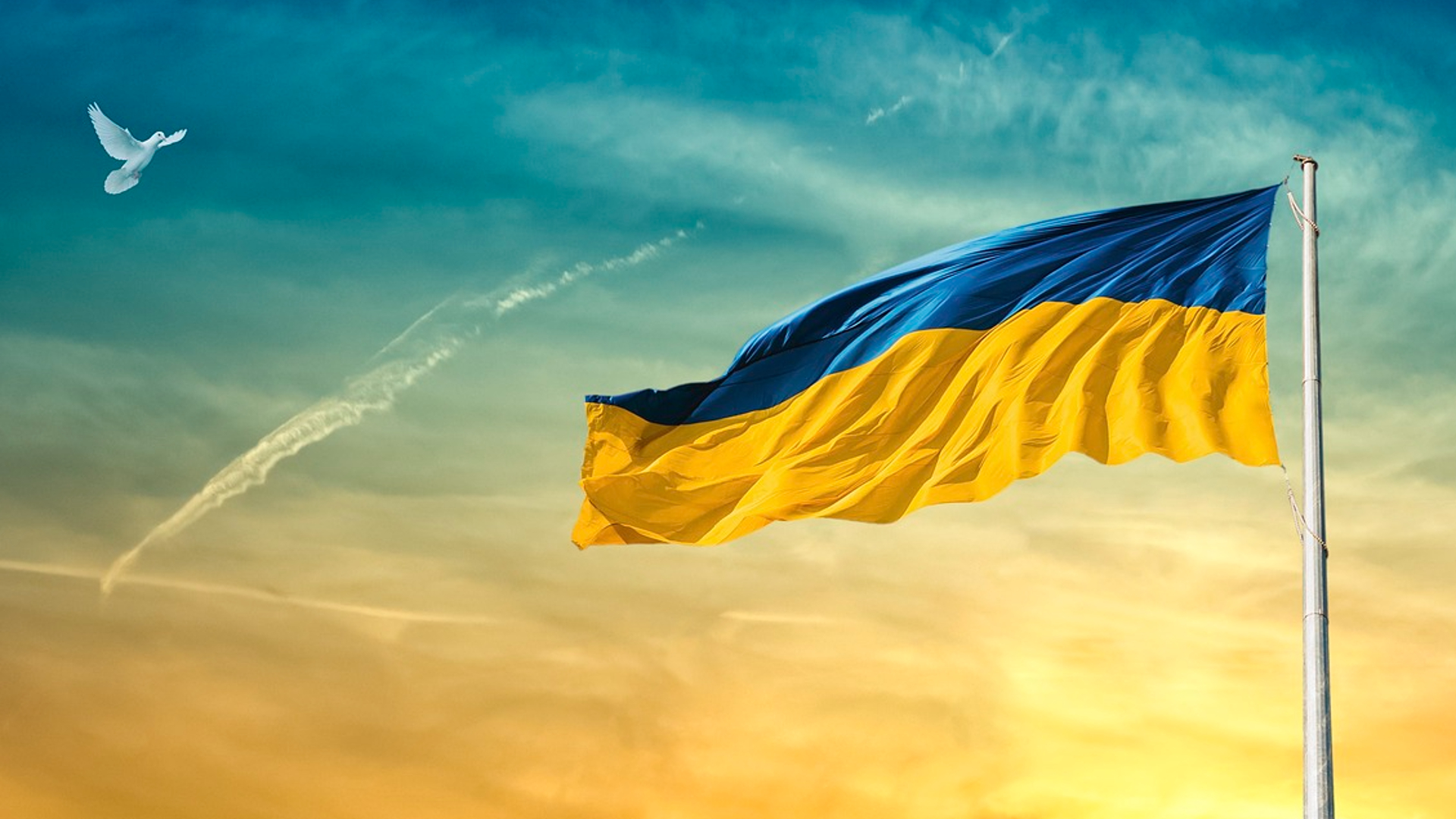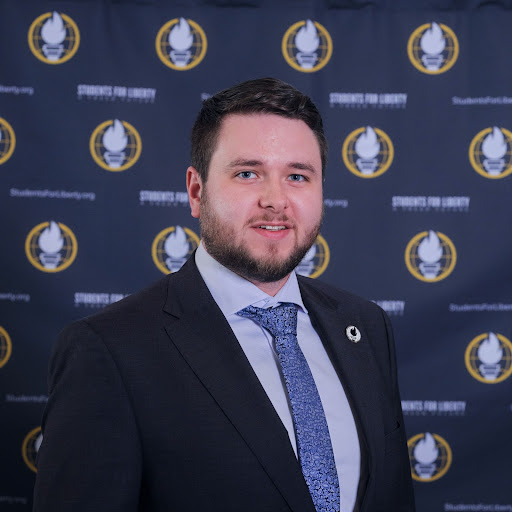Amid the ongoing war in Ukraine, Vladimir Putin and the Russian state — along with many gullible voices in the West — assert that Ukraine is a victim of Western colonialism and expansionism.
Indeed, Putin’s narrative frames Russia’s invasion — or “special military operation” — as a supposed liberation of Ukraine from nefarious external influences.
However, an examination of Ukraine’s intricate history with its eastern neighbor reveals a starkly different truth — one deeply rooted in centuries of Russian colonialism and expansionism.
The Ukrainian nation and identity has been marked by centuries of Russian and Soviet subjugation, including numerous atrocities.
A brief history of Ukraine
Nestled in the heart of Eastern Europe, Ukraine boasts a history as complex and diverse as its geographical landscape. Spanning millennia, the Ukrainian narrative is characterized by a fusion of cultures, resilience against external forces, and a continuous quest for identity.
Ukraine’s historical roots trace back to the ancient Slavic tribes that inhabited the region. The Kyivan Rus, established in the 9th century, marked a pivotal moment in Ukrainian history. Around this time, the city of Kyiv became a cultural and political center, fostering trade and cultural exchanges that laid the foundation for Ukraine’s unique identity.
In the 13th century, the Mongol invasion left a lasting mark on the region, imposing a period of domination. However, out of this turbulent era emerged the Cossacks, a fiercely independent warrior class. The Zaporozhian Cossacks, in particular, played a crucial role in resisting external control and became a symbol of Ukrainian tenacity.
The subsequent centuries saw Ukraine caught in the crossfires of regional power struggles. From the Polish-Lithuanian Commonwealth to the Ottoman Empire, external influences shaped Ukraine’s fate. The Treaty of Pereyaslav in 1654, a pact with Russia, marked an attempt to secure autonomy, yet it also set the stage for a tumultuous relationship with Moscow.
The long history of Russian colonialism and expansionism in Ukraine
The 18th and 19th centuries witnessed the rise of the Russian Empire, and Ukraine found itself subjected to a policy of Russification. The suppression of the Ukrainian language and cultural expression sought to assimilate Ukraine into a homogeneous Russian identity, laying the groundwork for a prolonged struggle for independence.
With the collapse of the Russian Empire in the aftermath of World War I, Ukraine declared its independence in 1917, establishing the Ukrainian People’s Republic. This brief period of sovereignty, however, was marked by internal strife and external pressures from both the Bolsheviks and White Russian forces.
Ultimately, the Ukrainian bid for independence succumbed to the forces of the Russian Civil War, leading to Ukraine’s incorporation into the Soviet Union in 1922.
The Holodomor: Ukraine’s darkest days
The Holodomor, a term meaning “to kill by hunger,” refers to a devastating famine that occurred in Soviet Ukraine from 1932 to 1933.
It was undoubtedly one of the most tragic episodes in Ukrainian history and a horrific example of man-made famine, orchestrated by the Soviet government under Joseph Stalin, using forced collectivization and grain requisition quotas.
The Holodomor is recognized as a genocide by Ukraine, 33 other independent countries, and 35 out of 50 U.S. states due to the intentional nature of the famine and the disproportionate impact it had on the Ukrainian population.
Soviet authorities implemented policies that were designed to suppress Ukrainian nationalism and resistance to collectivization. The seizure of grain and food from Ukrainian farmers, along with harsh penalties for non-compliance, led to widespread starvation and death.
Estimates of the death toll vary, but it is widely accepted that several million perished during the Holodomor, the vast majority of whom were ethnic Ukrainians. In many ways, it was an escalation of a centuries-long effort by the Russian establishment to colonize Ukraine and erase its distinct identity, language, and culture.
The devastation of the Holodomor, coupled with Soviet occupation, further strained the relationship between Ukraine and Russia. The Soviet era, even after World War II, saw a continued suppression of Ukraine’s culture, language, and national identity.
The Russian establishment has never come to terms with Ukrainian sovereignty
The collapse of the Soviet Union in 1991 ushered in a new era for Ukraine, with its independence restored. However, the quest to become a stable, democratic, and prosperous nation was fraught with economic challenges, political complexities, and persistent geopolitical tensions.
Nonetheless, Ukraine continued to edge towards a brighter future. At the same time, Russia, ruled by Vladimir Putin since 2000, took a path of autocracy and belligerence against its neighbors.
Notably, Russia’s interference extended well beyond its borders, exemplified by events such as the Russo-Georgian War of 2008. The conflict underscored Russia’s resistance to acknowledging the sovereignty of its former satellite states and their aspirations for closer integration with the West.
The intricate relationship between Russia and Ukraine also manifested in the 1990s when Ukraine, with a promise of security guarantees from Russia, as well as the U.S. and the U.K., handed over its nuclear weapons as part of the Budapest Memorandum.
This move, ostensibly aimed at fostering trust, ultimately did not secure the desired outcome as Russia failed to reciprocate with a genuine commitment to respecting Ukraine’s autonomy and sovereignty. The subsequent years witnessed a pattern of Russian interference, undermining Ukraine’s efforts to align itself with Western partners.
In essence, the post-Soviet era has been marked by a consistent and deliberate effort by Russia to maintain influence over its former satellite states, hindering their independent trajectories and thwarting aspirations for closer ties with the West. This interference has cast a long shadow over the region, contributing to the enduring geopolitical complexities faced by Ukraine and indeed several of Russia’s other neighbors.
Conclusion
Vladimir Putin’s revisionist narrative surrounding Ukraine is a calculated attempt to distort historical truths and justify Russia’s aggressive actions in the region.
By selectively misinterpreting historical events, Putin aims to present Ukraine as an inherent part of a greater Russian world, disregarding centuries of Ukraine’s distinct cultural, linguistic, and political identity.
This revisionism conveniently omits the brutal legacy of Russian colonialism and expansionism that has left a profound mark on Ukraine, from the suppression of its language and culture to acts of aggression and subjugation.
There is no doubt that, from any perspective that values liberty and self-determination, the Russian invasion of Ukraine is entirely illegitimate, as were earlier attempts to undermine Ukrainian sovereignty.
However, questions remain as to how far other countries should go in supporting Ukraine’s defensive efforts.
President Biden declared that U.S. support for Ukraine “will not waiver.” The deeper question is: what defines support?
From initial sanctions on Russia to recent large infusions of cash and military equipment, will this lead to a peaceful resolution, or simply increase the threat of nuclear escalation from a desperate Putin? Or should it only begin and end with diplomacy?
This theme will be an important topic of discussion at Students For Liberty’s upcoming LibertyCon International.
Political organizer and conflict journalist, Dylan Burns; former congressman and radio host, Joe Walsh, and Heath Mayo, a writer and corporate lawyer, will take part in a panel discussion on the extent of U.S. involvement in helping Ukraine defend against the Russian invasion. The panel will be moderated by political writer and commentator Stephen Kent.
Students For Liberty’s flagship annual event, LibertyCon International will be held in Washington, D.C., on February 2-4, 2024. It promises to be the place for engaging with leading experts and connecting with others who share a dedication to advancing pro-liberty ideas and creating a freer future.
Click the button below to sign up for updates and secure your spot at this exciting event. We can’t wait to see you there!
This piece solely expresses the opinion of the author and not necessarily the organization as a whole. Students For Liberty is committed to facilitating a broad dialogue for liberty, representing a variety of opinions.



